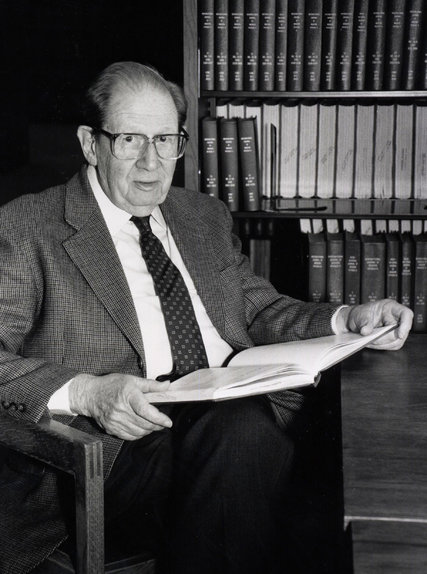
What a strange thing modernity was.
That was brought home to me twice in recent days. A friend, a graduate student in Classics, wrote me, ” there are no circumstances today in which a scholar of my generation would comfortably advocate making archaic/classical/etc., historical analogies. The exemplum has lost its force in a modernity where our temporality’s conceptual uniqueness rests on its dissimilarity with all times that preceded it.“
That made me wonder where such detachment from the past had come from.
Then I read with sadness the obituary of my former colleague at Princeton, Carl Schorske. A real Mensch! That reminded me of the answer to my question.
The Times summed his work up well:
The chapters coalesced into a cogent argument positing Vienna from the late 19th century until the end of World War I as a crucible of change in Western intellectual life — the time and place where the past abruptly receded from contemporary art and thought, and modernism gained a foothold and momentum. … “Vienna, in the fin de siècle, with its acutely felt tremors of social and political disintegration, proved one of the most fertile breeding grounds of our century’s ahistorical culture,” Professor Schorske wrote. “Its great intellectual innovators — in music and philosophy, in economics and architecture, and, of course, in psychoanalysis — all broke, more or less deliberately, their ties to the historical outlook central to the 19th-century liberal culture in which they’d been reared.” "
So there it was. Vienna: Arthur Schnitzler, Gustav Klimt, the composer Arnold Schoenberg and the artist and writer Oskar Kokoschka and of course, Sigmund Freud. But what a strange thing Carl Schorske accomplished. He historicized the ahistorical. He brought the well-honed skills of a historian to a phenomenon that had taught us all to be wary of the past, to liberate ourselves from it, if we wished to be truly liberal. He made a past out of it, and in doing so, made it possible, as his pupil John Leonard says, through his ”windows, dumbfounded, I looked at Rousseau and Goethe, Marx and Freud. In his drawing room I listened to Bach and managed for the first time to hear Schoenberg.“ Thanks to Schorske’s skill as a historian we comprehended more of the past, not less. So now we can move on, into the indeterminacies and fragmentation of post-modernism, to be sure, but with something of the past to accompany us.
 RSS Feed
RSS Feed
